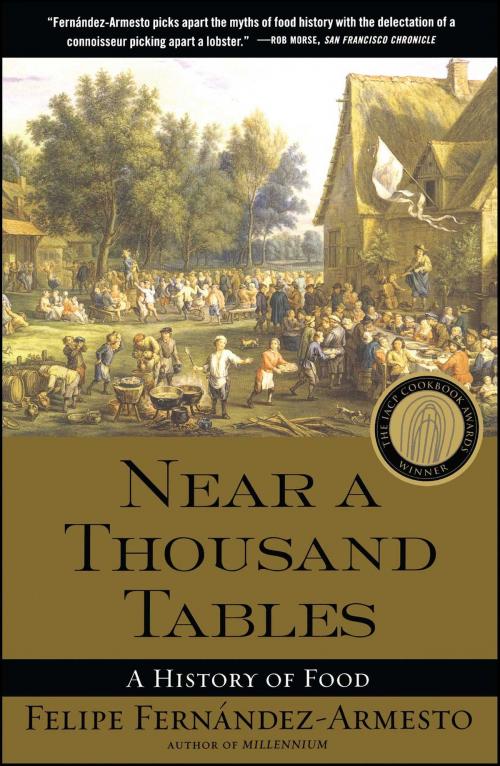| Author: | Felipe Fernandez-Armesto | ISBN: | 9780743234153 |
| Publisher: | Free Press | Publication: | June 4, 2002 |
| Imprint: | Free Press | Language: | English |
| Author: | Felipe Fernandez-Armesto |
| ISBN: | 9780743234153 |
| Publisher: | Free Press |
| Publication: | June 4, 2002 |
| Imprint: | Free Press |
| Language: | English |
In Near a Thousand Tables, acclaimed food historian Felipe Fernández-Armesto tells the fascinating story of food as cultural as well as culinary history -- a window on the history of mankind.
In this "appetizingly provocative" (Los Angeles Times) book, he guides readers through the eight great revolutions in the world history of food: the origins of cooking, which set humankind on a course apart from other species; the ritualization of eating, which brought magic and meaning into people's relationship with what they ate; the inception of herding and the invention of agriculture, perhaps the two greatest revolutions of all; the rise of inequality, which led to the development of haute cuisine; the long-range trade in food which, practically alone, broke down cultural barriers; the ecological exchanges, which revolutionized the global distribution of plants and livestock; and, finally, the industrialization and globalization of mass-produced food.
From prehistoric snail "herding" to Roman banquets to Big Macs to genetically modified tomatoes, Near a Thousand Tables is a full-course meal of extraordinary narrative, brilliant insight, and fascinating explorations that will satisfy the hungriest of readers.
In Near a Thousand Tables, acclaimed food historian Felipe Fernández-Armesto tells the fascinating story of food as cultural as well as culinary history -- a window on the history of mankind.
In this "appetizingly provocative" (Los Angeles Times) book, he guides readers through the eight great revolutions in the world history of food: the origins of cooking, which set humankind on a course apart from other species; the ritualization of eating, which brought magic and meaning into people's relationship with what they ate; the inception of herding and the invention of agriculture, perhaps the two greatest revolutions of all; the rise of inequality, which led to the development of haute cuisine; the long-range trade in food which, practically alone, broke down cultural barriers; the ecological exchanges, which revolutionized the global distribution of plants and livestock; and, finally, the industrialization and globalization of mass-produced food.
From prehistoric snail "herding" to Roman banquets to Big Macs to genetically modified tomatoes, Near a Thousand Tables is a full-course meal of extraordinary narrative, brilliant insight, and fascinating explorations that will satisfy the hungriest of readers.















